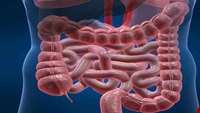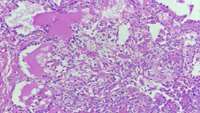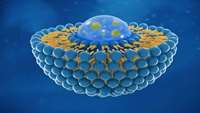Researchers discover stem cells in the optic nerve that enable preservation of vision
Researchers at the University of Maryland School of Medicine (UMSOM) have for the first time identified stem cells in the region of the optic nerve, which transmits signals from the eye to the brain.
'Mini-lungs' reveal early stages of SARS-CoV-2 infection
'Mini-lungs' grown from tissue donated to Cambridge hospitals has provided a team of scientists from South Korea and the UK with important insights into how COVID-19 damages the lungs.
Cure for diabetes University of Alberta researchers believe they've found one
EDMONTON -- Scientists at the University of Alberta say they may have discovered a cure for diabetes.
Stanford team creates cellular atlas of the human lung
A team of researchers from multiple departments at Stanford University has created a cellular atlas of the human lung that highlights the dozens of cell types that comprise parts of the lungs
3-D bioprinted heart provides new tool for surgeons
Professor of Biomedical Engineering Adam Feinberg and his team have created the first full-size 3-D bioprinted human heart model using their Freeform Reversible Embedding of Suspended Hydrogels (FRESH) technique.
Gut immune cells may help send multiple sclerosis into remission
An international research team led by UCSF scientists has shown, for the first time, that gut immune cells travel to the brain during multiple sclerosis (MS) flare-ups in patients. These gut cells seem to be playing a protective role, helping drive MS symptoms back into remission.
Repetitive elements trigger RIG-I-like receptors to enhance hematopoietic stem cell formation
Hematopoietic stem cells can replenish all the different cell types of our blood system. For this reason, hematopoietic stem cells are the cells used in many blood diseases when patients need transplantations.
Non-hereditary mutation acts as natural gene therapy in patient with rare disease
Researchers affiliated with the Center for Cell-Based Therapy (CTC (ctcusp.org/rationale-2/presentation)) in Ribeirão Preto, Brazil, have identified for the first time a non-hereditary mutation in blood cells from a patient with GATA2 deficiency, a rare autosomal disease caused by inherited mutations in the gene that encodes GATA-binding protein 2 (GATA2). GATA2 regulates the expression of many genes that play a key role in developmental processes and cell renewal.
Researchers show safer, more targeted way to deliver CRISPR gene therapy
Light-activated liposomes could help to deliver CRISPR gene therapy—and the method could prove safer and more direct than current methods.
Children produce different antibodies in response to SARS-CoV-2
Children and adults produce different types and amounts of antibodies in response to infection with the new coronavirus, SARS-CoV-2, a new study from researchers at Columbia University Vagelos College of Physicians and Surgeons has found.












